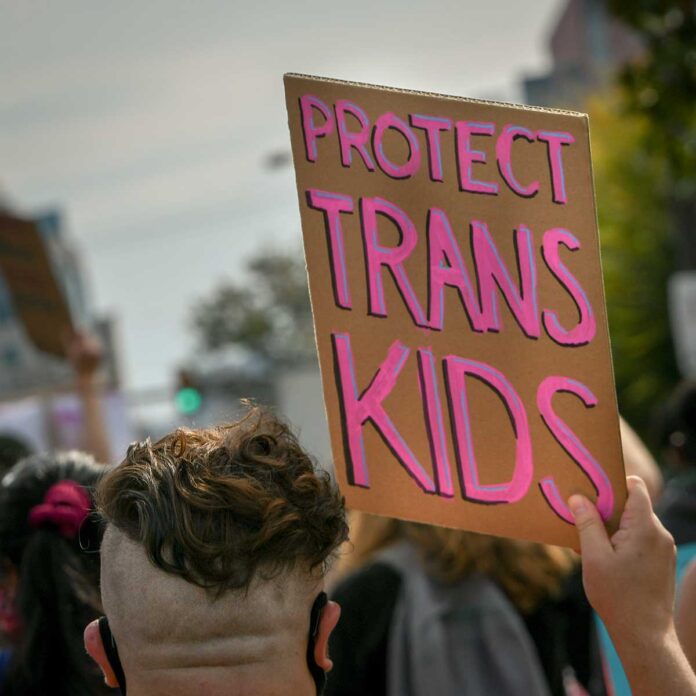The leaders of Ark of Safety LGBTQ+ Safe Haven, a faith-based nonprofit that runs out of Next Level Revival Church, are working towards getting the safe haven component of the organization off the ground. It would welcome all LGBTQ+ community members, but would prioritize trans women of color. Ark of Safety co-founder and co-president Tatyana Woodard set up a GoFundMe campaign to raise funds to operate the safe haven, which has so far reached $2,695 of its $20,000 goal.
The safe haven would provide a multifaceted, trauma-informed space where Black and Brown trans women can access temporary housing, meals, prevention and other healthcare services, trauma services, or access clothes or condoms if they are in need.
“Philadelphia doesn’t have any safe havens for the LGBTQ [community], and we’re seeing that they are popping up in different states,” said Woodard, who also works as community affairs manager at Mazzoni Center. Baltimore is one such city that has a safe haven that runs on a similar model.
On the GoFundMe page, Woodard commented that Philly’s homeless shelters do not cater to the unique needs of queer and trans individuals. She and the team plan to provide temporary housing to 10-20 people at the safe haven, but are willing to start a little smaller if need be. “We just want to build out a safe place for residents,” she said.
Bishop Romaine Gibbs serves as co-founder and co-president of Ark of Safety LGBTQ+ Safe Haven, and Deontae Brown-Barnum is also working to get the safe haven program up and running. They hope to be able to connect future clients of the safe haven to Mazzoni Center’s healthcare services, and to have Nhakia Outland, social worker and founder of the organization Prevention Meets Fashion, come into the space to lead sessions and supply clothes.
“[Philly] has a lot of trans and LGBTQ [people], and unfortunately a lot of them are homeless because of discrimination,” Gibbs said. “When it comes to them being able to be who they are as far as identity, there’s a lot of hate crime and violence toward them. A lot of times they end up being rejected so they end up homeless, they end up selling their bodies, they end up doing drugs because that’s what they get caught up in.”
He said that through the safe haven program, the team strives to “cut down on the violence, also cut down on losing the lives of trans individuals. How do we do that? We get them in a program, get the resources they need and begin to help rebuild them, and they can live in their true identity.”
Woodard noted that safe haven would be open when an individual needs urgent services in the instance they’ve been assaulted, for example, when other community organizations are typically closed.
“A lot of [LGBTQ service centers] aren’t open during the hours that we’re seeing that a lot of these attacks are happening to Black and Brown trans women,” Woodard said. “We want to be somewhere they can drop in if they do have an emergency, if they were just assaulted. Some people don’t even know what to do in those instances.”
Drag performer Marcha Pisces, a nonbinary person of color, organized and hosted a drag fundraiser at Next Level Church that brought in an additional $1,000 for the future safe haven. The show featured all Black and Brown trans and gender nonbinary performers.
“[Safe haven] is as close to their hearts as mine and Tatyana’s, and everybody else on the planning committee for this fundraiser,” Marcha Pisces said.
They told PGN that the safe haven is important to them because they went through the foster care system as a kid, but continued to experience homelessness when they aged out of the system. They said that there needs to be more substantial housing resources for Black and Brown queer youth so they don’t go back to living on the street when they are no longer eligible to be placed in a foster home.
Marcha Pisces is currently in a housing program, but they plan to leave it because of false promises that the program would be welcoming to LGBTQ people of color, they said.
“[The building] has a plaque on it that says it’s an LGBT-friendly living place, but they make it look pretty,” the drag performer said. “They really don’t serve the trans community, especially Black and Brown trans people.”
Woodard too experienced homelessness and housing insecurity in the past, she told PGN.
“I remember not having somewhere to stay when I first was able to get a job, couch surfing and living out of hotels,” she said.
Knowing that she would be in a different place today if not for her experiences of homelessness, Woodard expressed the desire to help her fellow community members.
“So many people have talked about building a safe space and the lack of housing for Black and Brown trans women, but nobody has actually tried to make an effort to change this,” she said. “I didn’t want to keep talking about it. Let’s actually do something about it.”

